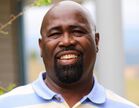|
Former resident, John Butler, Jr., returns to Gemeinschaft Home—this time as an employee.  Residence Life Coordinator, John Butler, Jr. Residence Life Coordinator, John Butler, Jr. The sound of his voice often precedes him, as residents and staff encounter John Butler, Jr., Gemeinschaft Home’s new Residence Life Coordinator, and its deep tone resonates all of the warmth and grace of the man himself. Whether he is leading a group session or having an impromptu conversation in the hallway, Butler embodies a gentle aura that is both authentic and powerful. Butler began work in this position last June, but his journey at Gemeinschaft Home began almost thirteen years ago, when he arrived as a resident. “I came here from prison in 2003. I got here the day after Christmas. It was what I needed at the time, and that is why I am still here,” Butler explains, pointing to his experience in the program as the watershed moment in which he chose another path. “I went to prison twice and had an active addiction for over thirty years. I got to the point where everything that I believed in was a lie,” he says. The major difference he observes in his perspective today is that “I believe in the impossible. The impossible in this situation being the idea that a prisoner can never return to mainstream society and live a positive and productive life.” He is proof that the impossible is indeed possible, after all. He embodies a real and present example for residents in the program. He enacts a different way of being in the world, and has the ethos “to embrace others on the same road,” he says, because he has shared so much of their past experiences. On prison life, Butler explains, “When you continuously have someone in control of the light switch and water valve and all movement, it produces a certain amount of stagnation. Prisoners don’t have to worry about anything, and when they get out of prison, they don’t know how to handle it.” He adds, “We need help a lot of times to take a look around and realize what we’re doing and the next thing we need to do.” Butler argues that the strength of Gemeinschaft Home is in its capacity to provide residents with learning experiences and tools for living that enable them to adjust to life beyond incarceration. Part of that mission involves instilling an ethic of care for others and a sense of accountability for one’s own actions. “Having genuine concern and empathy was a big learning experience for me,” he says, reflecting on his time as a resident in the program. Butler completed a six-month program in 2004, and, after settling in the local area, he never stayed too far away from Gemeinschaft Home. With expertise in maintenance work, Butler found employment and housing, joined a church, and established new friendships, but it seemed as though something was absent from his life. He explains that “I was good at my work, and I made good money, but it wasn’t who I am, because my heart wasn’t giving back. It’s in my heart to reach out to people to show them the way.” Over the last decade, Butler gradually has become more involved in the organization, both on a volunteer and paid basis, and he has served on the board of directors. Butler has also become active in other community-based initiatives as well. For example, he is president of Virginia 21, a nonpartisan organization that raises awareness about voting issues and monitors ongoing discussions in congress, the general assembly, and among local delegates. Butler’s interest is significant and personally relevant, because as a convicted felon in the Commonwealth of Virginia, he lost his privilege to vote. The right can be restored for ex(offenders), but only through a complicated application and approval process. Butler was released more than thirteen years ago, but he has only recently been given back the right to vote. Now in a full-time position Butler’s work for the organization involves a variety of roles, and, in part, involves communicating with representatives from the Virginia Department of Corrections (DOC) to determine whether referred applicants are eligible for the program and to facilitate the transition of new residents from prison to Gemeinschaft Home upon their release. However, most of his job focuses on residents currently in the program, and his approach is the same with an individual one-on-one as it is in a larger group setting: “Let’s work our way through this together.” He advises residents to be realistic in their expectations and emphasizes that “we are not going to be who we want to be overnight.” Butler strongly advocates for the creation of more re-entry/transition programs, and he challenges the common usage of the word “halfway house,” as it applies to Gemeinschaft Home, stressing, “Halfway house is not good enough. Half is not good enough. We need to have a successful completion of the transition for them to successfully go on with their lives.” Down the road, Butler hopes to become director at a sister or brother facility that is connected to Gemeinschaft Home. As he now reflects on his past experiences, Butler stresses, “All I wanted was to be clean, sober, and able to make a difference—and that is what I did,” crediting Gemeinschaft Home for the opportunity to do so. Comments are closed.
|
Archives
August 2023
|